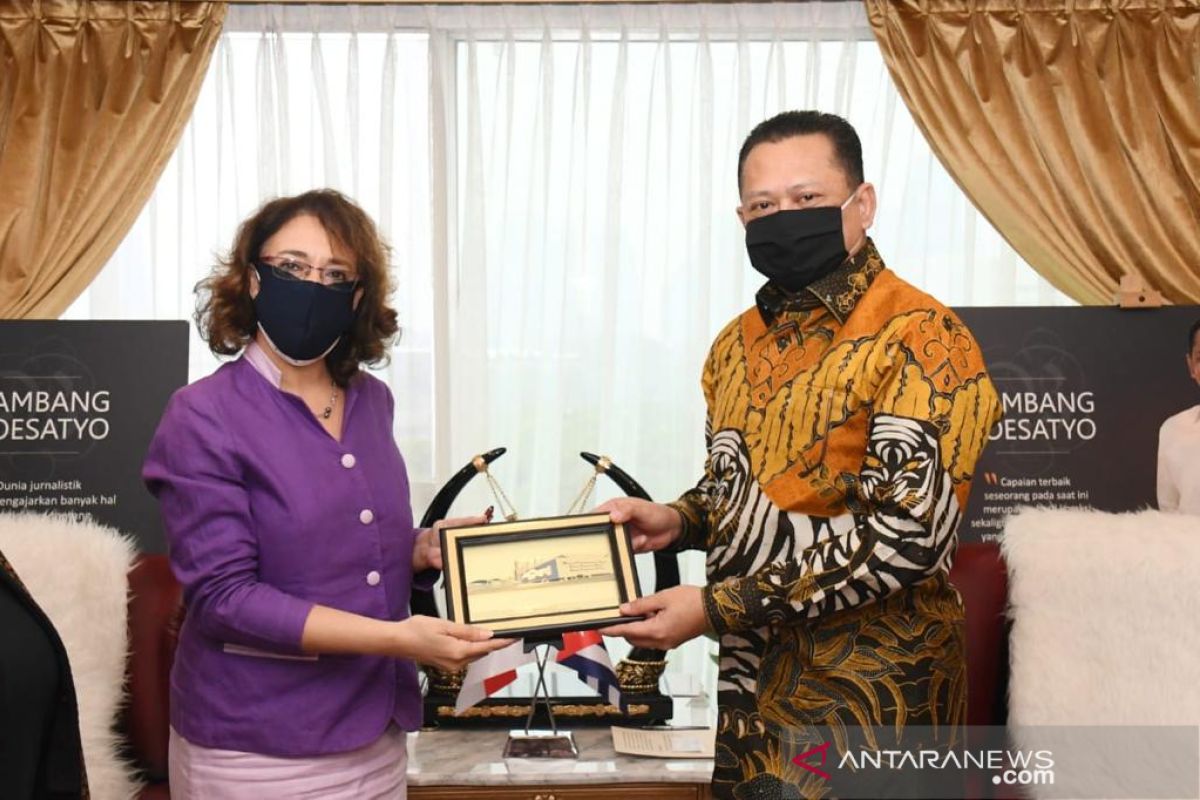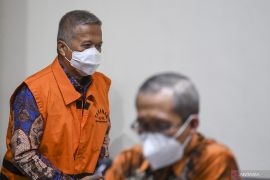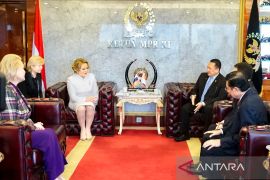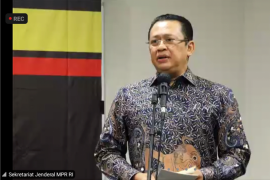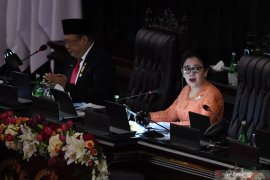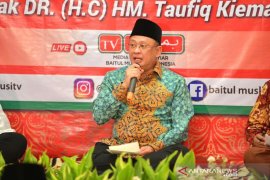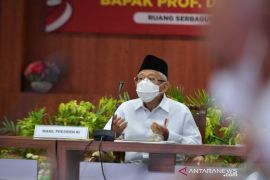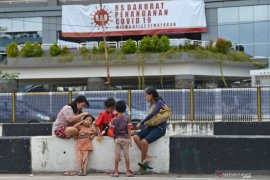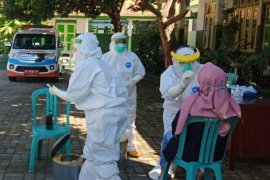He said he considers Cuba as one of the countries with the best health systems in the world with its successful development of the "immunity booster Recombinant Interferon Alpha 2B" (IFNrec).
"IFNrec has been proven to be successful in increasing the body's immunity to suppress the spread of COVID-19 and various other diseases such as cancer, HIV-related infections, tumors, genital warts, and hepatitis types B and C," Bamsoet said in a statement here on Monday.
Soesatyo delivered the statement at a meeting with the Cuban Ambassador to Indonesia, H.E., Mrs. Tania Velazquez Lopez, at his office in Jakarta on Monday
He said one of the biggest challenges of the COVID-19 pandemic has been the intense competition among countries for the development of vaccines.
It is not certain that a vaccine would become available in 2021, and even if it is available, it is not certain that Indonesia would get it quickly, he noted.
"While waiting for the COVID-19 vaccine, Indonesia can work with Cuba for procuring IFNrec as one of the supports to suppress the spread of COVID-19 and various other diseases," he advised.
Since 2017, Indonesia and Cuba have inked MoUs in the health sector with a focus on cooperation in five fields, among which is the development of medical cooperation and production of medicines, including vaccines, he explained.
The second field covers maternal and child health, and nutrition; and, the third, infectious and non-communicable diseases, including malaria, dengue fever, cancer, and diabetes.
“The fourth (field) is joint research and development in related health fields, including laboratories, biopharmaceutical research, biotechnology, and nanotechnology. The fifth is human resource development and knowledge transfer, including health service management, financing, and health policy," he pointed out.
Bambang said the MoUs should not just remain on paper, but must be implemented for the good of the two countries.
According to him, the progress of the health sector in Cuba has been extraordinary. The Caribbean nation has devised a universal healthcare system that provides free access to healthcare to its people and promotes disease prevention rather than treatment, and this has helped reduce the impact of the COVID-19 pandemic on Cubans, Soesatyo added.
The Golkar Party politician said that one of the advantages of the universal healthcare system developed by Cuba is that it has revolutionized polyclinics and made them community-based. The World Health Organization (WHO) has reported that since 2002, 241 polyclinics in Cuba have been ‘revolutionized’ in this manner.
"The aim has been to add services previously only available at hospitals. Now, the average polyclinic in Cuba offers 22 services, including rehabilitation, X-rays, ultrasonography, optometry, endoscopy, thrombolysis, emergency services, traumatology, clinical laboratories, family planning, emergency dentistry, mother-child care, immunization, and care for diabetics and the elderly,” Soesatyo said.
Related news: Indonesia calls for equitable access to COVID-19 drugs, vaccines
He said Indonesia needs to emulate Cuba by revitalizing health centers. If that is achieved, various health problems concerning the lives of the people would no longer be an obstacle, he averred.
According to Soesatyo, Cuba has developed a new style of diplomacy to enhance its role in the international political arena, that is, not with the power of weapons or the economic community of trade, but through health diplomacy.
"Sending various doctors and health workers to various parts of the world, Cuba has become a country whose existence deserves to be reckoned with. Especially in the midst of the pandemic situation of COVID-19, which is enveloping various countries of the world, Cuba has sent 1,400 doctors to around 20 countries," he noted.
He said he hoped that in addition to cooperation in the health sector, economic cooperation between Indonesia and Cuba is also improved because, as fellow countries of the Non-Aligned Movement, the two nations have enjoyed a collaborative relationship since 1960 — Indonesia under the leadership of President Soekarno and Cuba under the leadership of President Fidel Castro.
The value of trade between Indonesia and Cuba in 2019 amounted to US$6.7 million, he said. Indonesia is a major producer of palm oil products and derivatives. If it cannot sell oil products and derivatives to the European Union, those products can be sold to Cuba and other Latin American countries, he pointed out.
Related news: Indonesia, UK united in push for affordable, accessible vaccines
Translator: Imam B, Azis Kurmala
Editor: Yuni Arisandy Sinaga
Copyright © ANTARA 2020
